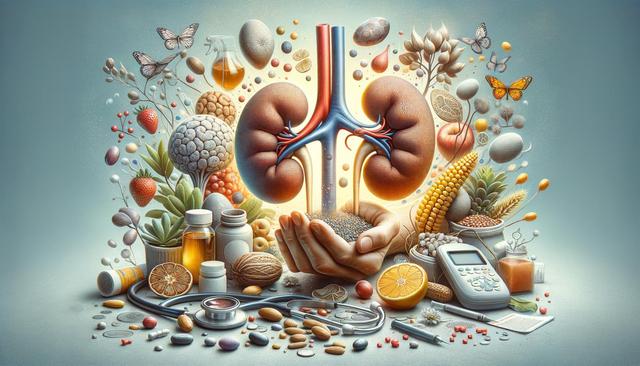Understanding Chronic Kidney Disorder and Its Impacts
Chronic kidney disorder (CKD) involves a gradual loss of kidney function over time. The kidneys play a critical role in filtering waste, balancing fluids, and regulating blood pressure. When they become impaired, it can lead to serious complications such as high blood pressure, fluid retention, and electrolyte imbalances. For individuals diagnosed with CKD, lifestyle changes and home remedies can play a key supportive role in managing the condition and slowing its progression.
It’s essential to understand that home remedies should not replace prescribed treatments but can work alongside them to enhance quality of life. Staying informed and consistent with health practices can make a significant difference. Monitoring kidney function through regular medical check-ups remains a vital aspect of managing CKD.
Hydration and Kidney Health
Staying properly hydrated is one of the most basic yet effective ways to support kidney function. Adequate fluid intake helps the kidneys flush out toxins and waste products more efficiently. However, those with advanced CKD may need to limit fluid intake based on their doctor’s advice to avoid fluid overload.
Here are a few hydration tips that can benefit kidney health:
- Drink water consistently throughout the day instead of in large amounts at once.
- Avoid sugary drinks and sodas, which can strain the kidneys.
- Limit caffeine and alcohol, as they can contribute to dehydration.
In addition to water, certain herbal teas, such as dandelion or nettle tea, are often used to support kidney function. It’s important to consult a healthcare provider before adding any herbal supplements, especially if you are taking medications or have other health conditions.
Dietary Adjustments to Support Kidney Function
Diet plays a crucial role in managing chronic kidney disorder. A kidney-friendly diet typically focuses on reducing the intake of substances that can burden the kidneys, such as sodium, phosphorus, and potassium. Tailoring your meals can help maintain optimal nutrient levels and prevent further damage to the kidneys.
Consider the following dietary strategies:
- Choose fresh fruits and vegetables with lower potassium content, like apples, cabbage, and bell peppers.
- Use herbs and spices instead of salt to flavor your food.
- Limit processed foods, which often contain high levels of sodium and phosphorus additives.
- Moderate protein intake, focusing on high-quality sources like eggs, poultry, or tofu.
It may also be helpful to work with a dietitian who understands CKD-related nutritional needs to develop a meal plan that supports your health goals.
Physical Activity and Stress Management
Regular physical activity can be beneficial for people with CKD by improving cardiovascular health, managing weight, and reducing stress. While intense exercise may not be suitable for everyone, light to moderate activities can contribute positively to overall well-being and energy levels.
Some supportive activities include:
- Daily walks or light jogging
- Gentle yoga or stretching routines
- Low-impact strength training under supervision
Beyond physical exercise, stress management plays a critical role in kidney health. Chronic stress can elevate blood pressure and worsen CKD symptoms. Incorporating relaxation techniques such as deep breathing, meditation, or even creative hobbies can help reduce stress levels and promote emotional balance.
Herbal and Natural Supplements with Caution
Some natural supplements and herbs are traditionally used to support kidney health, but it is important to approach them with caution. The kidneys are responsible for filtering these substances, and certain herbs can be harmful or interact with medications.
Examples of herbs that are sometimes used under guidance include:
- Ginger – may help with inflammation and digestion
- Turmeric – known for its anti-inflammatory properties
- Astragalus – used in traditional practices to support kidney function (requires medical consultation)
Before starting any supplement, it is essential to consult with a healthcare provider familiar with CKD. Some seemingly harmless natural remedies may contain compounds that stress the kidneys or interfere with treatments. Always prioritize safety and transparency when considering complementary approaches.
Conclusion: Managing CKD at Home with Care
For individuals living with chronic kidney disorder, adopting supportive home remedies can enhance comfort and help slow disease progression. Through mindful hydration, diet modifications, regular physical activity, and cautious use of natural remedies, it is possible to contribute positively to kidney health. These strategies are most effective when personalized and used in conjunction with medical guidance.
While no home remedy can cure CKD, a consistent and informed approach to daily care can improve quality of life and support long-term wellness. Always keep open communication with your healthcare team to ensure that your home practices align with your treatment plan.






